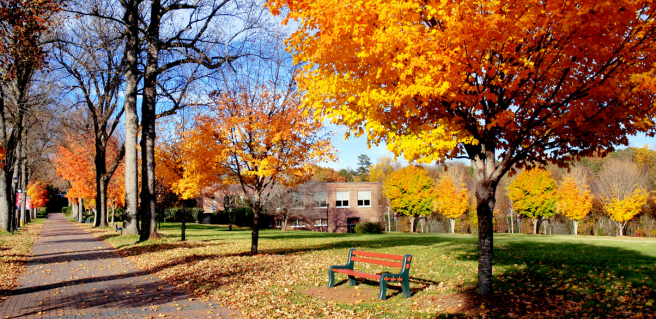Moving to a new city is an exciting and challenging process, but it can be a little daunting when you’re a college student with no ties to the city except your new academic institution. There are lots of major cities across the states, such as New York, Philadelphia, and Atlanta, and you may already know where you would like to live. Still, varying neighborhoods can provide unique living experiences within a single city — do you want peace to study, to be near the party scene, or both? For newcomers and first-time renters, here are some pro tips for choosing the right neighborhood for your needs.

Safety
Safety is one of the most essential criteria for moving to any new city. There are lots of aspects to consider about personal and communal safety. Here are a few of the most vital ones.
Living With Others
One of the best ways to stay safe if you’re young and living in a new city is co-living. College students often opt to live with others who are also studying or have similar interests. Big cities have many opportunities for this arrangement, making coliving Philadelphia, California, Atlanta, Chicago, and other big college cities a trendy option for students trying to keep their living costs as low as possible, build a sense of community, and feel safe.
There are lots of places to co-live across the United States, with the East Coast offering some of the most exciting areas for residents with many universities, amenities, entertainment, and fantastic living conditions compared to other parts of the country. If you’re moving in from Atlanta, you could find yourself feeling a little lost in a bigger city like Philadelphia. Moving into the northern part of the States might mean major differences in things like weather, local foods, culture, and the kinds of spaces you’ll get to explore, but you’ll feel more grounded once you read up on the ways to make life in a new city more familiar to yourself.
Crime Statistics
As a college student, you’re likely walking home from school, libraries, and other places carrying a laptop in your bag. So, feeling safe while walking with valuable possessions is essential to many students, but you may not be able to find a completely crime-free area in every neighborhood. However, as long as you’re vigilant, walk along secure routes, and keep abreast of the crime statistics in your area, things should be okay. Reading the local news, checking criminal reports on the city’s website, or calling local law enforcement when there’s trouble can help you keep up with your area’s crime statistics and ways to stay safe.
Neighborhood Watch
Do you know if a neighborhood watch group exists in your chosen neighborhood? Some new students living away from home for the first time find value in this. Check the student accommodation notice boards on campus to see if there is ‘round-the-clock security in your area or if you’re in an area with a neighborhood watch. Most neighborhood watches put up formal signs in their area, so it will be easy to spot which places have them.
Street Lighting
Although this may feel like something we take for granted, street lighting is one of the best ways for a neighborhood to feel safe. If you’re able to, visit the area you’re considering moving to ahead of the big move. Walk around in the evenings and get a feel for the space — and ensure its streets are well-lit. Late-night library sessions may mean you’ll find yourself returning home late at night and be grateful for the safety provided by your area’s street lights.
Talk With Neighbors
If you catch a fellow neighbor out on the street, walking their dog or mowing the lawn, it’s always great to say hello and introduce yourself to people in the area. A familiar face will always increase the safety level surrounding where you live. Student areas usually have a lot of similar-aged people in the same position, so be friendly and say hello — not only will you know who lives around you, but other newcomers will also feel safer knowing who you are. If you live in shared accommodation, always tell your roommates where you’re going and when you should be home.
Of course, there are many other ways to determine whether an area is safe and always follow your instinct. If somewhere doesn’t feel right, keep searching for a place that makes your body feel secure. The more time you spend in a place, the safer you will feel.

Convenience
One thing that many students forget to think about when moving to a new city is how close their general stores will be to where they live. Everyone needs food, toiletries, and medicine, all of which should be near your home, especially in case of emergencies. Pharmacies, grocery shops, and perhaps even a salon could be along your college commute or your walk to work. Having such places within walking distance also adds a layer of security and a sense of community because people will remember you based on your routines.
These conveniences aren’t the only consideration. You should also learn where the neighborhood you’re thinking of staying is in relation to your college, public transport, and the library. Are they close enough to ensure they meet your needs? Or will it be a dreaded journey across town every time you need to visit the store?
Outdoor Destinations
If you enjoy the outdoors, why not look into where the nearest park or trail running route is? Taking walks, going on long drives, and other activities could be essential for the type of living you need to be happy in the summer months. Here are a few things to think about on this front.
Sidewalks
While this may not be a dealbreaker for many new college students, having more sidewalks makes the neighborhood more pedestrian-friendly. Instead of walking on the street while cars pass you by or having to ride a bike everywhere, you have the safety of the sidewalk to quickly get from point A to point B.
Walking trails
If you have a dog, you may need to walk each morning before you start your studies, or you may enjoy a stroll after eating your dinner with your new family of roommates who have also embarked on their college journey in a new city. Check all the nearby walking trails, if any, or a city trail map.
Parks
Is there a park within walking distance? Or do you need to drive there every time? Does the park have any amenities like secure running routes or public restrooms? These are just a few questions you can consider, but they stand a good chance of enhancing your quality of life outside your home.

Your Daily Commute
The proximity of where you study to where you live is an essential factor to consider, especially if you’re looking for a short commute. In smaller cities like Atlanta, you will never need a car as a student; plus there are great transport links. However, if you have a car and intend to drive, determine the traffic between your potential new home and your university or college. Or, if you plan to use public transport, researching and memorizing the routes of the buses and trains you’ll be taking is integral to your ease of movement. The size of the city also will play a big part in how long your commute will be. For example, New York is huge, making the distance between your essential destinations a little more of a struggle; places such as Atlanta are great as they are big enough to enjoy diverse experiences but small enough to walk places and bump into old friends.
Starting your new college journey in a big city you’ve never lived before, like Philadelphia or Atlanta, can be daunting. However, research, asking questions, familiarizing yourself with the area, and talking to potential neighbors can make the transition easier. Have honest, open conversations with the people you trust the most. Their personal experiences may help guide your move to a new city. No matter where you end up moving to, these considerations can help you make the best decision for your requirements.
